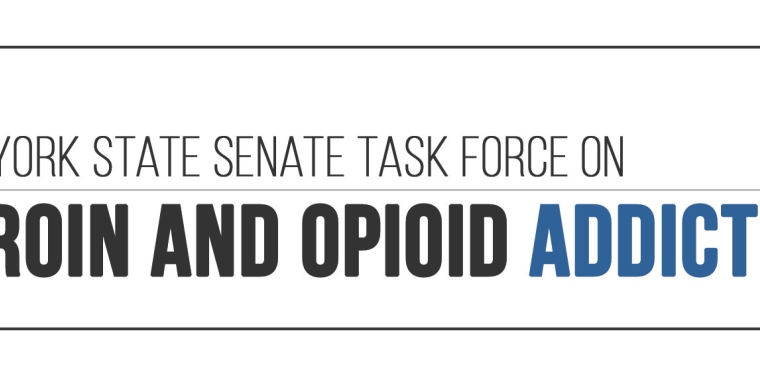
Seward: Rational Tuition Policy For SUNY A Priority
James L. Seward
June 2, 2011

ALBANY, 06/02/11 – New York State Senator James L. Seward (R/C/I, Oneonta) and Assemblywoman Crystal D. Peoples-Stokes (D, Buffalo) today were joined by State University of New York (SUNY) officials in calling for the immediate passage of legislation establishing a rational tuition policy for SUNY.
Enactment of a five-year, fair, predictable and responsible tuition plan for SUNY will protect access and affordability, allow students and families to plan for the cost of their education, and ensure that additional tuition revenue is invested in campus improvements and program development.
Senator James L. Seward said, “Our SUNY schools are one of our state’s greatest assets; they provide our future innovators and leaders with a quality, affordable education while partnering with communities statewide and driving our local economies. Establishing a rational tuition policy will aid students and parents as they plan for the cost of a college education. This legislation also ensures that SUNY campuses will have the ability to meet the changing needs of the educational world and offer unique programs that attract the best and brightest students.”
Assemblywoman Crystal Peoples-Stokes said, “This legislation is a meaningful step towards mitigating the threat of diminishing access across our State University System. Enabling SUNY to set a rational tuition plan and to retain that revenue for critically needed programs will begin to offset the negative impact of recent austerity measures imposed upon SUNY. Giving families the opportunity to adequately prepare and plan for the students higher education is of critical importance along with giving SUNY the flexibility to meet those needs".
SUNY Chancellor Nancy L. Zimpher said, “SUNY is an invaluable partner in the economic revitalization of New York, but in order to be effective, the system must be permitted to flourish. Senator Seward and Assemblywoman Peoples-Stokes have presented a fair and responsible plan that ensures continued affordability, access, and quality for public higher education in New York, and I commend them for their leadership on this issue. Students, faculty, elected officials, and a majority of New Yorkers agree - SUNY needs a rational tuition policy, and we need it now.”
Implementation of a rational tuition plan for SUNY will allow students and families to plan for the cost of a college education and give SUNY a sustainable revenue stream. Additionally, a rational tuition plan would protect against fluctuating budget cuts and help grow and strengthen the entire SUNY system.
Specifically, the legislation (S.4709/A.6915) would:
• Allow the SUNY Board of Trustees to set annual tuition, provided that it does not increase by more than 5.5 percent per year, for each of the next five years;
• Repeal Section 355 (8-b) of the Education Law, thereby eliminating the tuition sweep from 2009-2010 and returning the full amount of the funds swept back to SUNY;
• Place state support received, and tuition and fees charged by SUNY, in a fiduciary account or some other form of “lock box” whereby tuition and fees would be disaggregated from other general funds, and thus, not be subject to future sweeps into the general fund; and
• Statutorily prohibit the use of incremental increases in tuition to backfill cuts in state support for SUNY by requiring New York to fund SUNY to at least an established baseline year, plus some additional funding to cover mandatory costs
Historically, SUNY’s tuition policy has been anything but rational. Over the last 48 years, SUNY has raised tuition only 13 times. The smallest tuition increase was 7 percent ($310) in 2009-2010. The largest increase was 43 percent ($650) in 1991-1992. Seventeen times since 1963, a first-year student entered SUNY and, during his or her college career, never had to pay a tuition increase while others saw two or three increases.
Current resident undergraduate tuition at SUNY is $4,970. Even with the tuition increases supported by this legislation, SUNY would continue to be the least expensive public institution in the New England and the mid Atlantic states and among the lowest in the nation.
SUNY student and faculty governing bodies have passed resolutions supporting rational tuition; many legislators, business leaders, UUP, and the editorial boards at all major upstate and Long Island newspapers have voiced their support; and New Yorkers have agreed, with a majority supporting tuition control by the SUNY Board of Trustees, according to the latest Siena Poll.
In April, the SUNY Board of Trustees unanimously passed a resolution that directed SUNY’s campus presidents to identify financial aid resources in preparation of the passage of rational tuition.
The State University of New York is the largest comprehensive university system in the United States, educating more than 467,000 students in more than 7,500 degree and certificate programs on 64 campuses with nearly 3 million alumni around the globe.
-30-
Share this Article or Press Release
Newsroom
Go to NewsroomState Budget Paves Way For Local Highway Improvements
April 15, 2014

Seward To Host Senate Task Force On Heroin
April 14, 2014

